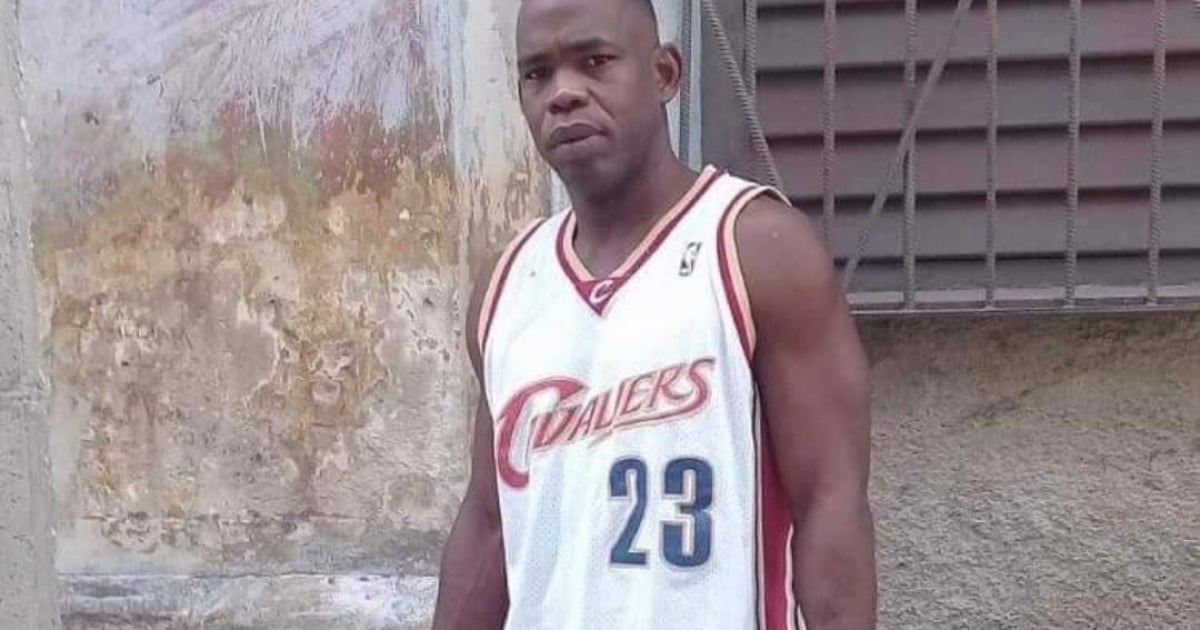
Juan Carlos Torres Campillo (February 16, 1974) is known in Central Havana as Juancito. As of today, he has been in prison for 28 days in protest of the 30-year sentence he is serving in the Combinado del Este for two crimes that he claims he did not commit. The sanction was made official on January 25. They blame him for two robberies with violence. One to a Cuban-American and another to a cyclist. Neither of the two victims identified him before a judge and according to the family, the investigator of the case, Eduardo Maya Jerez, told them that he was willing to testify in his favor at trial because he does not believe that he is the author of these crimes. Still, he has been in prison for five years. He was arrested in 2019 and entered the Combine on January 21, 2021, after spending months detained in 100 and Aldabó, where he remained firm as "not confessed", until he was finally sent to the Combine.
"The day the crimes were committed, my father was in Virtudes, between Gervasio and Belascoaín, in my mother's house. The same victims never recognized my father when he was presented to them as a suspect. They called him a repeat offender because He was imprisoned 28 years ago," says his son Jean Carlos Torres, from Mexico.
"I was resting because I had problems with my legs and I couldn't walk. I have my neighbors and the president of the CDR as witnesses, but they were not taken into account," adds the wife, from Cuba.
Juancito's family is now fighting to reopen a case that they consider was plagued by irregularities. One of them is that the testimony of the investigator of the case exonerating him of the crimes of which he is accused was not accepted. The family sent two review requests to the Supreme Court requesting that the case be reopened, but they were denied. Now they want to file another request through the Ministry of Justice, after going to the Plaza de la Revolución, where María del Carmen Cedeño attended them, with good manners, but without providing solutions since the Prosecutor's Office answered that "the case is archived." ".
The family also claims to have in their possession a letter from an inmate who claims to be the author of the crimes that Juancito is accused of. "Now my father is in a bad situation because he is not going to eat until his case is attended to and even then they are not attending to him. No one has even attended to him nor has he been hospitalized because they say that in the Combinado there is no room for the planted. They are simply waiting for him to die. I fear for my father's life."
Juancito's wife and son denounce that the trial "was rigged" because they did not even have evidence against him. The lawyer handling the case has requested the file, without success. "My father could die there, they don't care about that."
Judicial corruption
Asked about the case, Santiago Alpízar, a lawyer in Miami and coordinator of the CubaDemanda law firm, recalls that on the Island there is an "absolutely corrupt" judicial system. In his opinion, the reason is that in a dictatorial regime like the one that exists in Cuba "there can be no independence of the judicial power", something that is appreciable, even questionable, in some cases, in democratic countries, in which the Montesquieu's traditional theory on the distribution of powers between the legislative, executive and judicial. But in Cuba "everything depends on the supreme will of the Communist Party and that is why all the injustice that can occur in each of the cases is due to those who face citizens who may have committed crimes."
The maxim that "the crime will be proven beyond any reasonable doubt does not exist in Cuba and the courts sometimes, out of mere conviction that the person may have committed crimes, impose sanctions that sometimes reach the extreme level of the death penalty." death for crimes that do not deserve it in other places," adds Alpízar. Focusing on the case of Juancito, sentenced to 30 years of deprivation of liberty, still without knowing what stage of the process, in the opinion of the person in charge of CubaDemanda the correct thing, "is for the family to go to the Collective Law Firm, hire a lawyer and try to review and inform the judge who is in charge of supervising compliance with the sentence if it is being carried out, in the manner in which it was imposed, if it is already final.
"The other thing is that it is a final sentence against which there is no appeal because all possibilities have been exhausted and the Supreme Court ratifies a sentence as tremendous as that of 30 years of deprivation of liberty, something uncommon today in the countries of normal social development, the family would then have the possibility of carrying out a review process and this procedure can be presented before the Supreme Court, before the Prosecutor's Office and they would have the opportunity to review it in favor of the sanctioned person. That would be my recommendation. If the sentence is. already signed, have it reviewed, if there are new elements that suggest that the person being sanctioned is not guilty or innocent of the facts that make up the case for which he was tried and sanctioned.
What do you think?
SEE COMMENTS (1)Filed in: